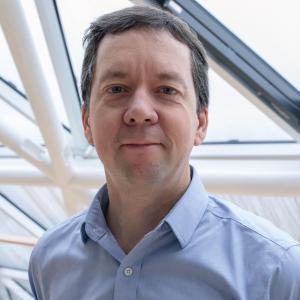More partnerships and investment are needed to improve low levels of developing world vaccinations and fight future diseases. Here’s how the EU bank is working to create vaccine-manufacturing facilities in Africa and to vaccinate other regions of the world
Despite billions in investments and many ambitious goals, the percentage of people in developing countries vaccinated against COVID-19 is small.
The World Health Organization’s goal in September 2021 was to have 70% of the world population vaccinated by the middle of 2022. Eight months later, the number of people who received at least one vaccine against the coronavirus in most high-income countries was well above 70%, but the rate was 15% or much lower in low-income countries.
The European Investment Bank is devoting more time and investment to increase the distribution of vaccines, while looking for companies that can manufacture international vaccines locally. The goal: A big, global vaccine production capability to fight COVID-19 and future diseases.
The EU bank is working closely with the European Commission, the World Health Organisation, the Coalition for Epidemic Preparedness Innovations and other health groups to boost vaccine production. In June 2021, the European Investment Bank signed a €30 million global vaccine distribution deal with the biotechnology company Univercells to make large volumes of COVID-19 vaccines at a new Belgian site and to help build other vaccine plants around the world. In April 2022, the Bank offered a €15 million loan to the Italian biomedical research company IRBM to expand capacity to make vaccines and increase research into the coronavirus and other diseases.
Global advice, local production
The European Investment Bank also is helping Africa and other regions develop vaccines locally. Africa imports 99% of its vaccines. A new vaccine production facility at the Institut Pasteur de Dakar in Senegal is part of the Bank’s plan to fill a continent-wide gap in production and delivery.
“The COVID-19 pandemic has highlighted the need to increase vaccination in Africa,” says Amadou Sall, director of the institute. “If you want to stop the transmission or limit the severity of the disease, we need to vaccinate more people.”
The Institut Pasteur de Dakar plans to produce as many as 25 million doses of COVID-19 vaccines a month by the end of 2022, making it a key link in a vaccine strategy developed by the African Union and the Africa Centres for Disease Control and Prevention.
“Africa is fully reliant on other countries to produce vaccines and make them available to African people,” says Ramon Ynaraja, the European Investment Bank’s representative in Senegal. “This is why this site in Senegal is so important for the continent.”
To kick-start the Dakar facility, the European Investment Bank, the European Commission and individual countries provided grants, technical assistance and training. Germany approved a €20 million grant to help develop a regional pharmaceutical hub. Belgium proposed technological help for the hub. France provided nearly €2 million for feasibility studies.
The European Union is supporting the Institut Pasteur de Dakar with nearly €100 million in loans and grants. This EU package involves two loans of €75 million and €20 million from the European Investment Bank, and a €4.75 million grant from the European Commission.
The European Investment Bank is regularly adding to its contributions to COVAX, the global initiative to increase vaccinations in the developing world. The Bank announced in April 2022 a €1 billion plan to support COVAX, in addition to the €900 million in financing already pledged. COVAX has delivered around 1.5 billion COVID-19 vaccines to 145 countries.
A €1 billion package for Africa
The European Investment Bank’s support for the new Dakar plant is part of a €1 billion package of investment in vaccines, medicines and health technology in Africa launched at the G20 Global Health Summit in Rome in 2021. The package aims to increase the production and accessibility of health products and technologies in Africa.
Technology transfer and support for the creation of regional manufacturing hubs are an important part of the programme. In addition to the Dakar project, the European Commission is discussing potential vaccine-making sites in South Africa, Egypt, Morocco and Rwanda.
The European Investment Bank joined eight other development institutions early in 2022 to pledge support for Biovac’s plans to expand vaccine manufacturing. The South African pharmaceutical company announced in the middle of 2021 a deal with Pfizer to work on making the BioNTech mRNA vaccine in Cape Town. The goal is to have a capacity to make at least 100 million doses of the BioNTech vaccine in this location and distribute it to dozens of countries across Africa.
An investment in global heath security
The European Investment Bank is always looking into new ways to expand vaccine production in and outside Europe. In the middle of 2021, the presidents of Rwanda and Senegal met in Germany with European Commission President Ursula von der Leyen and European Investment Bank President Werner Hoyer to discuss how to get more vaccines to more global locations.
Joining this meeting were officials from BioNTech, which received backing from the European Investment Bank to create the first leading mRNA vaccine for COVID-19. At the meeting, BioNTech confirmed its intention of helping manufacture vaccines in Africa, potentially starting in Senegal and Rwanda. The factories would be clones of BioNTech’s plant in the German city of Marburg. The European Investment Bank also has reached out to global partners to investigate vaccine manufacturing possibilities in Ghana and Benin.
Working as a team “is how we emerge from the pandemic and build a stronger future for Africa and Europe,” said von der Leyen, after the meeting in Germany.
